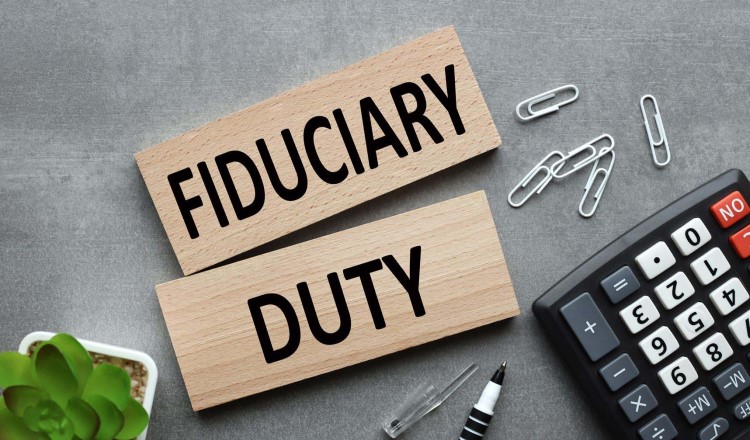
An employee’s fiduciary duty to their employer is a critical concept in business, ensuring trust and integrity within professional relationships. This duty represents the obligation of employees to act in the best interests of their employer. Employees, especially those in senior or key positions, must prioritize the employer’s interests over their own personal gain. This duty fosters trust, loyalty, and ethical conduct, all of which are essential for a business’s success and smooth operations. Understanding the scope and implications of fiduciary duty can help both employers and employees navigate their rights and responsibilities.
What Is Fiduciary Duty?
Fiduciary duty refers to a relationship in which one party, the fiduciary, is obligated to act in the best interest of another party, typically the beneficiary. In the employer-employee context, the employee assumes the role of the fiduciary, and the employer is the beneficiary. This duty applies most stringently to employees in high-level positions, such as executives or managers, who have significant access to confidential information or control over company resources.
The employee’s fiduciary duty to their employer includes various responsibilities, such as maintaining confidentiality, avoiding conflicts of interest, and acting with integrity. Breaching this duty can lead to legal consequences, including termination, damages, or even lawsuits. Therefore, it’s essential for both employers and employees to understand the scope and importance of fiduciary duty in their professional relationship.
Elements of Fiduciary Duty
There are several core elements that define an employee’s fiduciary duty to their employer. One of the most important duties is the obligation of loyalty. Employees must act in a way that benefits the employer and must avoid actions that could harm the company. This duty is particularly relevant when employees have access to sensitive company information, such as trade secrets, customer lists, or strategic plans. Misusing this information for personal gain or to assist a competitor would violate the fiduciary duty of loyalty.
Another crucial aspect of an employee’s fiduciary duty is the obligation to avoid conflicts of interest. This means employees should not engage in activities that benefit themselves or third parties at the employer’s expense. For instance, an employee who starts a competing business or directs company resources to their personal ventures breaches this duty.
Moreover, employees have a duty to act with honesty and integrity in all interactions on behalf of the employer. This includes providing accurate information, fulfilling job responsibilities to the best of their ability, and not misrepresenting the company. The employee’s fiduciary duty to their employer requires a high level of ethical behavior, as it is foundational to maintaining trust within the professional relationship.
Why Fiduciary Duty Matters
The employee’s fiduciary duty to their employer is essential for fostering trust and ensuring that business operations run smoothly. Employers rely on the integrity and loyalty of their employees to protect the company’s assets, reputation, and competitive edge. Without fiduciary duty, employees might be tempted to misuse confidential information, engage in self-dealing, or act in ways that harm the business.
Moreover, fiduciary duty encourages employees to align their actions with the company’s best interests. By acting in good faith and avoiding conflicts of interest, employees contribute to the company’s long-term success. This duty also creates a framework for accountability, where both employers and employees understand the boundaries of acceptable behavior.
From the employer’s perspective, fiduciary duty is important because it provides legal recourse in cases of employee misconduct. If an employee breaches their fiduciary duty, the employer may have grounds to seek damages or other legal remedies. For example, if an employee discloses trade secrets to a competitor, the employer could file a lawsuit for breach of fiduciary duty and recover financial losses.
Legal Consequences of Breaching Fiduciary Duty
When an employee breaches their fiduciary duty, it can have serious legal consequences. Employers may terminate the employee for cause, which can also result in the loss of severance benefits, stock options, or other compensation. In more severe cases, the employer may file a lawsuit to recover damages resulting from the breach.
The legal system recognizes fiduciary duty as a binding obligation, particularly for employees in positions of trust or authority. Courts take fiduciary breaches seriously, and employees found guilty of such violations can face substantial penalties, including personal liability for the harm caused. In extreme cases, criminal charges may even be brought against an employee who engages in fraudulent or illegal activities.
For example, if an employee responsible for managing company finances embezzles money, this would be a clear breach of fiduciary duty. The employer would not only have grounds to terminate the employee but also to sue for the stolen funds and any related damages. Additionally, the employee could face criminal prosecution for fraud or theft.
Upholding Fiduciary Duty
Upholding an employee’s fiduciary duty to their employer is vital for maintaining a healthy and productive working environment. Employers can help employees fulfill their fiduciary duties by clearly communicating the expectations and boundaries associated with their roles. Providing training on ethics and compliance is one way to ensure that employees understand their fiduciary responsibilities.
Employers should also implement policies to prevent conflicts of interest, such as requiring employees to disclose outside business activities or relationships that could create potential conflicts. Additionally, regularly monitoring employee conduct and maintaining transparent communication can help detect early signs of fiduciary breaches.
Employees, on the other hand, should be proactive in ensuring that their actions align with the company’s best interests. Avoiding activities that could create conflicts of interest and adhering to confidentiality agreements are essential practices for upholding fiduciary duty. If employees have concerns about whether an action may breach fiduciary duty, they should seek clarification from their employer or legal counsel.
The Importance of Fiduciary Duty in the Workplace
An employee’s fiduciary duty to their employer is a cornerstone of trust in the workplace. It ensures that employees act in the best interests of their employers, protect company assets, and avoid conflicts of interest. Fiduciary duty plays a crucial role in creating a positive work environment where integrity and accountability are prioritized.
For businesses, understanding and enforcing fiduciary duty is essential for protecting sensitive information, ensuring loyalty, and maintaining operational success. Employees who uphold their fiduciary duty contribute to the company’s growth and stability. By fostering an environment of trust and ethical conduct, both employers and employees benefit from a stronger, more resilient organization.

